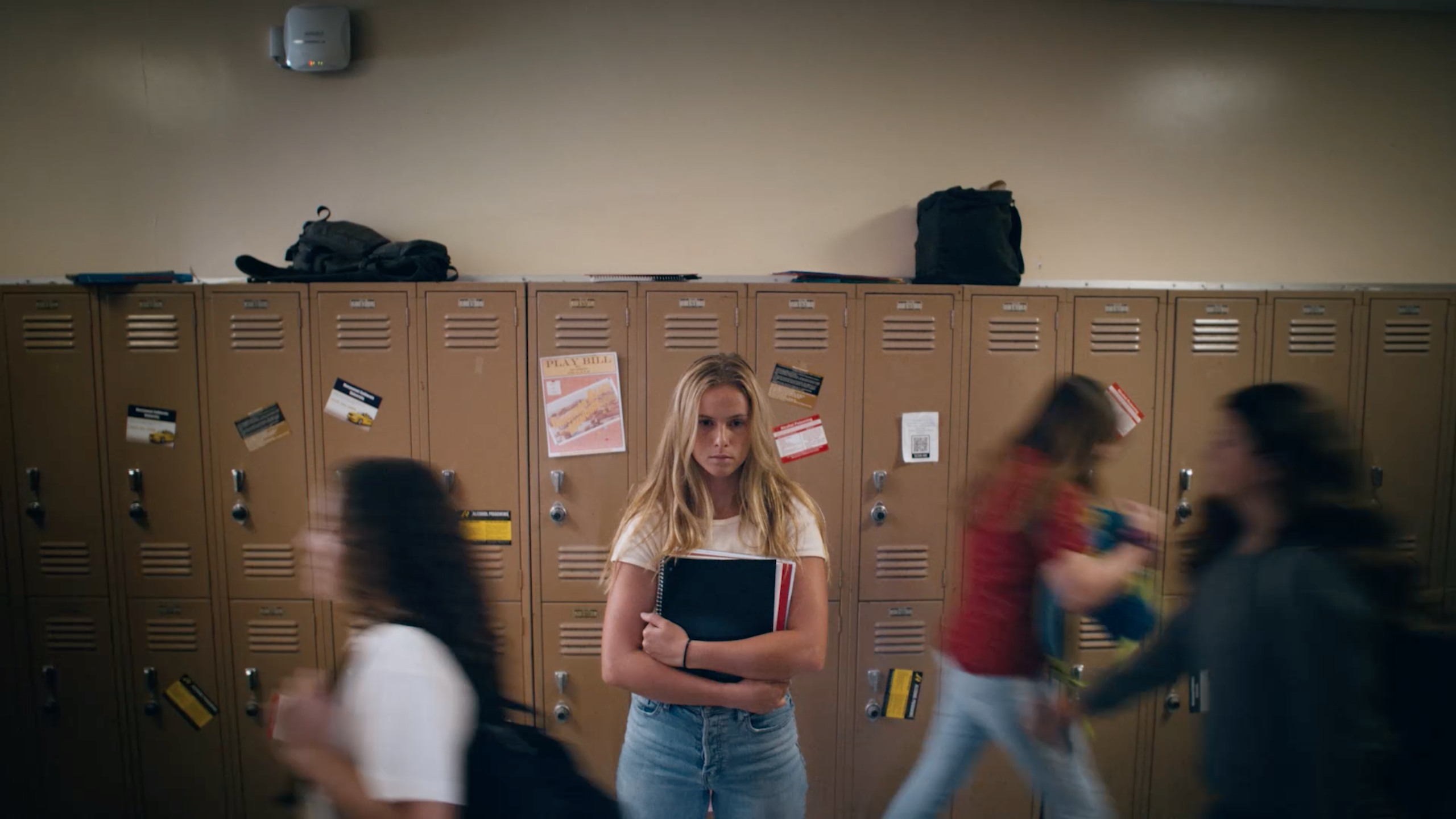By Michael Levin

We are lying to our children about what matters in life, says filmmaker Marisa Polvino, and because of those lies, our kids are paying a terrible price.
Polvino and her partner Kate Cohen are co-founders of Straight Up Impact, a production company dedicated to producing thought-provoking stories. For its first project, Straight Up Impact has produced a short-film series, Meaning in Madness, which explores the systemic issues contributing to record-high levels of anxiety and depression among teens and young adults. The first film in the series, Mackenzie, which follows the story of a 17-year-old high school student who feels she has been reduced to a number and a test score, is scheduled for release on May 20 to coincide with Mental Health Awareness month.
“It’s very rare,” Polvino says, “to have a day where we haven’t heard about a young person who hasn’t committed suicide or attempted suicide. It’s not just suicide, but anxiety, depression, and over-medication that are constants with young people in the world today. The system hurts kids by teaching them the fallacy that getting perfect grades so they can get a college education, and accruing all that debt, means that they will be successful and happy in life. These are lies, and our children are suffering because of those lies.”
“Suicide is coming up a lot in conversations, and with younger and younger kids,” Polvino notes. “We’re hearing about kids in the 7th and 8th grades talking about suicide. And if they aren’t suicidal, many kids are extremely anxious and depressed.
“Kids today are overprescribed with drugs, often just simply to make the jobs of teachers and parents easier, by making kids more docile. Kids are on a cocktail of meds, from anti-anxiety to anti-depression to ADHD medication. They are getting diagnosed at a younger age, sometimes even in kindergarten. Obviously, whatever we’re doing isn’t working, and that’s why we’ve made these films.”
In addition to chronicling the failures in our institutionalized educational system, Polvino and Cohen are tackling other extremely difficult issues that young people face. The second film in the series examines the over prescribing of pharmaceutical drugs to kids.
“Both of us are mothers, and we see these issues are urgent—urgent for our own kids, urgent for our kids’ friends, and urgent for children and families across the country, she said. “We wanted to use our strengths as filmmakers and storytellers to spark conversation around these topics, demystify them, and destigmatize them.
Ultimately, we want to do more than produce thought-provoking films, we want to inspire actionable change in the way children lead their lives. Within our communities, we all play a role in promoting mental health and wellbeing but we rely on institutional systems rather than each other to try and solve the crisis.
In the short film Mackenzie, Polvino and Cohen spotlight the pressure that kids have to get perfect grades, so that they can go to the best schools and have a shot at an American dream, which appears to be receding economically more and more each day.
“The pressure for grades is so intense,” Polvino argues, “that in and of itself triggers enormously high levels of anxiety and depression. Our kids are literally killing themselves over their GPAs. It’s total insanity. The problem is that changing the school system or the grading system is all but possible. So the question becomes what can we as parents or community members do to help our kids navigate these extremely difficult times? How do we help them get through the demands they face in terms of getting perfect grades and looking physically perfect as well?”
Polvino notes that the pandemic has only made things worse.
“Because of COVID,” she says, “you have increased amounts of isolation and disconnection because kids have been trapped at home. They do not have ways to express themselves, like athletics, theatre, or debate. All of those things that helped them come into their voices and share their voices were ripped away from them. If anything, the pandemic has exacerbated these extremely difficult issues that children face.”
The filmmakers plan to unveil at least one outlet to support young people find their purpose. In conjunction with the release of the film, Cohen and Polvino, along with their partner, Pam Roy, who is financing the film series, have collaborated with a group called Big Picture Learning to create Be-Unbound, a community mentorship program that helps children find and nurture their passions.
“There’s more to life than grades or how you look,” Polvino says. “That’s the message we want children to absorb, because if they do, they’ll feel better about themselves. Children have a right to be happy. The question is how to take the pressure off them so they can lead happier lives.”

